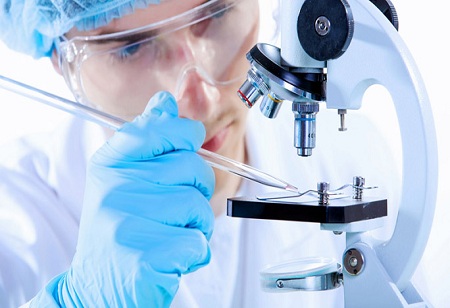Richa Singh | Friday, 26 May 2023

The Diagnostics industry is increasingly being shaped by innovative business models such as franchising, subscription-based services, and digital platforms. These models are making it easier for diagnostic industries to expand their reach to a wider customer base. For example, franchising helps them to expand quickly and efficiently, while digital platforms make it easier for customers to access services. Subscription-based services also make it easier for customers to access diagnostic services on a regular basis.
However, there are also some disadvantages to these models. Despite the advantages, these models can also lead to a decrease in the quality of service, as well as the potential for customers to be taken advantage of financially. Some studies have shown that franchises have a much higher success rate than businesses not based on a franchise model, with rates as high as 90 per cent. As the famous actor Jason Statham put it: “The insurance of working with a big, already successful franchise just gives you the chance to do other things on a more personal level.” For example, franchising can be expensive, and digital platforms may not be accessible to everyone.
Additionally, subscription-based services may not be affordable for everyone. These models are helping to make diagnostics services more accessible to a wider population, as well as making it easier for healthcare providers to access the latest technologies. The changing face of diagnostics in India is ushering in a new era of healthcare delivery. The diagnostics industry trends in India have witnessed significant growth over the years, driven by advancements in technology, increasing awareness about preventive healthcare, and a growing middle-class population. Alongside these developments, innovative business models have emerged, revolutionizing the way diagnostics services are delivered and accessed.
One of the most innovative business models shaping the diagnostics industry in India is the introduction of mobile diagnostic laboratories. These laboratories on wheels bring diagnostic services to the doorsteps of underserved communities, rural areas, and even urban slums. This model eliminates the need for patients to travel long distances, especially in areas where access to healthcare facilities is limited. Mobile diagnostic laboratories are equipped with state-of-the-art medical equipment and staffed by trained professionals who can conduct a wide range of tests, including blood tests, urine tests, and radiology services. These laboratories offer convenience, affordability, and high-quality diagnostics, which are crucial for early disease detection and effective treatment. By leveraging this business model, several start-ups and organizations have made significant strides in improving healthcare access in remote areas. For instance, Health Cube, a leading player in the mobile diagnostics space, has deployed its portable diagnostic units across various regions in India, providing essential diagnostic services to millions of people who otherwise would have limited access to such facilities.
Another innovative business model that is transforming the diagnostics industry in India is the emergence of online diagnostic platforms. These platforms serve as a one-stop solution for individuals to book diagnostic tests, receive test results online, and access healthcare professionals for consultations. Online diagnostic platforms have simplified the process of diagnostic testing, making it more user-friendly and convenient for patients. Through these platforms, users can browse and select from a wide range of diagnostic tests, book appointments at their preferred diagnostic centres, and even avail of home sample collection services. Once the tests are conducted, users can access their test reports securely online, eliminating the need for physical copies and reducing the turnaround time for results. These platforms also enable users to consult healthcare professionals remotely, allowing them to seek expert advice and interpretation of test results without the need for in-person visits. This model has particularly gained traction during the COVID-19 pandemic, as it minimizes the risk of exposure and supports social distancing measures. Well-established online diagnostic platforms such as 1mg, Metropolis, and Thyrocare have experienced significant growth and have become trusted names in the industry. Their user-friendly interfaces, extensive test offerings, and emphasis on data privacy and security have made them popular choices among consumers.
Collaborative diagnostic ecosystems are another key innovation driving the growth of India's diagnostics industry. These ecosystems bring together various stakeholders, including diagnostic centres, hospitals, doctors, and patients, to create a seamless and integrated healthcare experience. By integrating diagnostic services with healthcare providers and medical records, collaborative diagnostic ecosystems enable the efficient sharing of patient information and test results. This interconnectedness facilitates faster diagnosis, reduces duplication of tests, and enhances patient care coordination. Additionally, collaborative diagnostic ecosystems often leverage advanced technologies such as artificial intelligence and machine learning to analyze vast amounts of patient data and provide personalized insights and recommendations. These insights can contribute to early disease detection, proactive health management, and better treatment outcomes. Several companies and healthcare organizations in India have adopted this business model to build comprehensive diagnostic networks. For example, Tata Trusts, in partnership with the Government of Maharashtra, has established a collaborative ecosystem called "Maha Arogya" to improve healthcare access and quality in the state. The ecosystem integrates diagnostic facilities, telemedicine services, and digital health records.